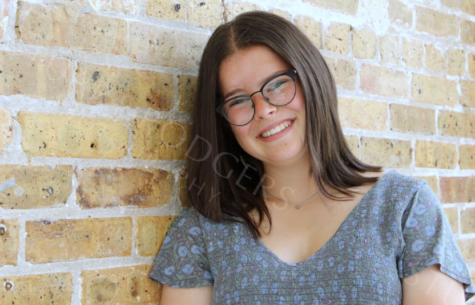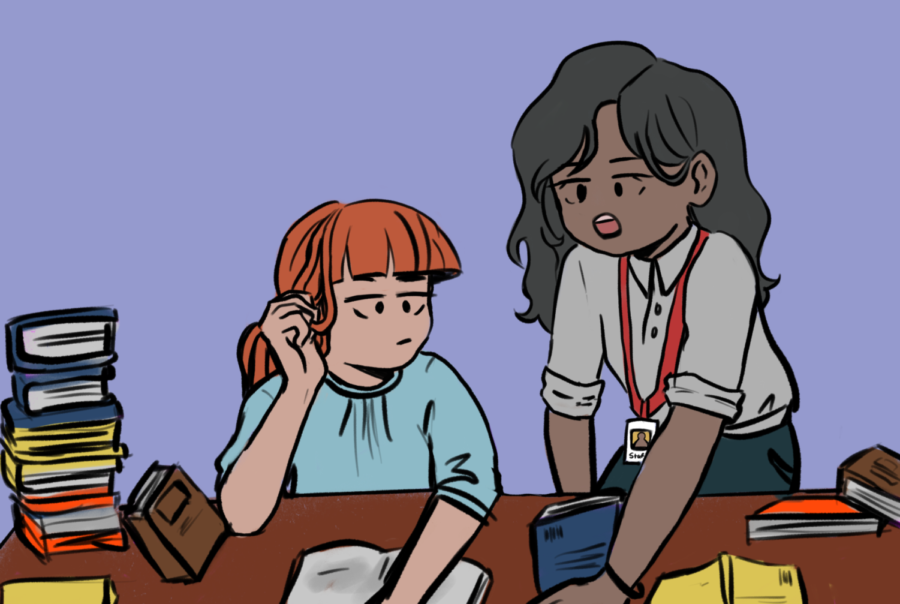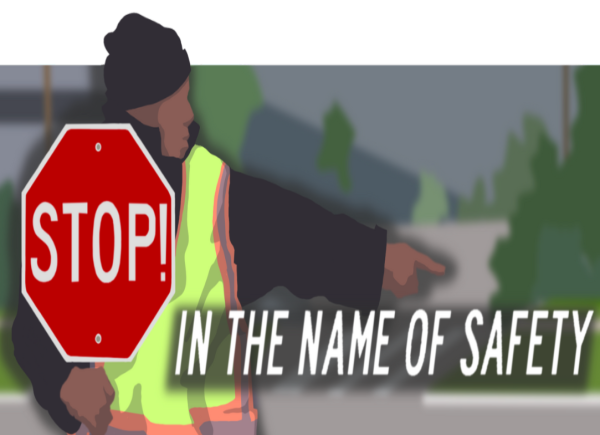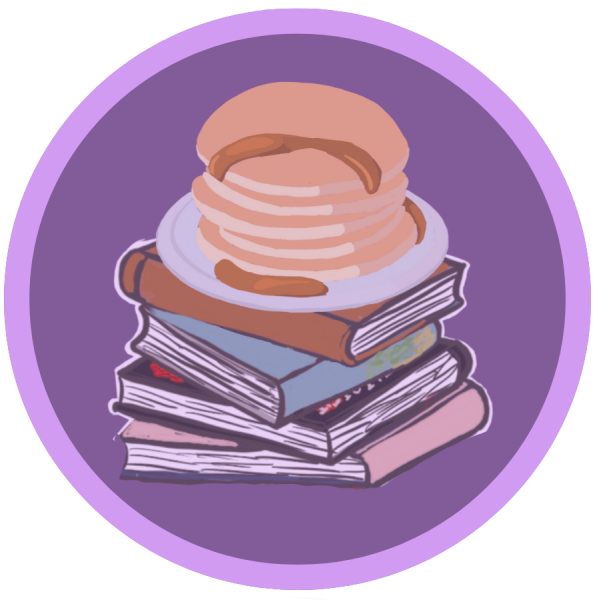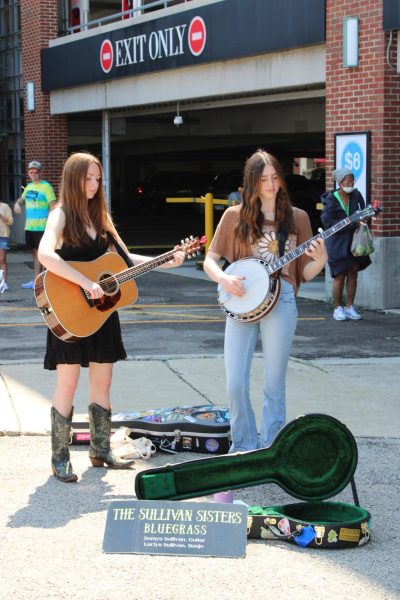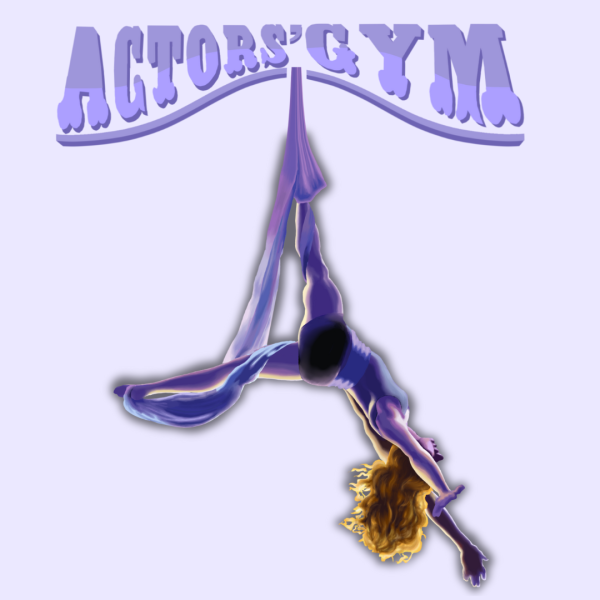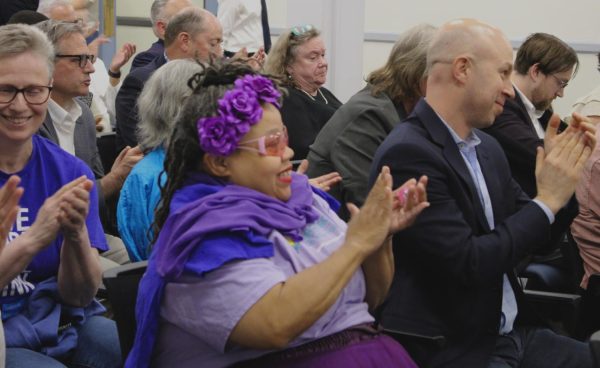Amid discussions on reading proficiency, Literacy Lab offers support
ETHS’ Literacy Lab, located on the second floor of the Arts Wing, was initially opened in the 2019-2020 school year with the goal of providing an inviting space for students who needed additional reading support.
“The Literacy Lab has several goals and purposes. One is we want to be able to offer a space that’s inclusive for all students so they can come and have a safe, quiet place where they can study,” Kiwana Brown, ETHS’ school-wide reading specialist, explains. “The second is to offer individualized, one-on-one support for students who have the most need, so we have a referral-based process in the Literacy Lab.”
The Literacy Lab continued to function virtually throughout e-learning, and, for many students, this time was crucial in improving reading proficiency and building relationships with staff members.
“Was [running a virtual Literacy Lab] hard? Yes. Did we adapt? Absolutely. We could still do our assessments. We actually could do everything that we’re doing now, and I think that kids really did appreciate it. Kids told me that sometimes we were the only teachers that they were talking to during the day,” Kandy O’Connor, one of two Literacy Lab coordinators, explains. “You have to have conversations in reading and literacy, especially if it’s one-on-one. So they were very thoughtful. And parents were very thankful because [the pandemic] was very isolating for the students, and it was isolating for us as well.”
While ETHS students continued to utilize a virtual form of the Literacy Lab during e-learning, the ETHS Educational Foundation was in search of the means to renovate the space. Eventually, this opportunity came in the form of a donor that was willing to fully fund the renovation of the Literacy Lab. Prior to the renovations, the Literacy Lab was housed in a space that was separated by a divider. Although the space was functional for students, it did not offer nearly as many resources as the renovated Literacy Lab offers today.
Currently, the Literacy Lab staff works with approximately 50 students who were referred by a teacher to receive additional reading support. The newly renovated Literacy Lab not only provides access to qualified staff members but serves as a welcoming, supportive space where students are offered choices about how they want to receive support.
Despite the referral process to receive support from the Literacy Lab, students are given the freedom to decide whether or not they want to take part in the process. Literacy Lab coordinators recognize that, in order to successfully help students, everyone involved must buy into the process and that success will only come in tandem with student engagement and interest. This is achieved through a concerted effort to keep students’ differing needs at the forefront of the work that is done.
“Students can check out books, and we try to do it organically as well. We ask, ‘What do you like? Let’s work through what you love.’ We want to use those strengths,” O’Connor says.
At the center of the Literacy Lab’s mission is Brown, ETHS’ school-wide reading specialist. Throughout her time in this role, Brown has shaped the future of the Literacy Lab and proved to be instrumental in increasing teacher engagement in the space.
“We partner with Northeastern Illinois University and offer literacy intervention classes [for staff members]. So [staff] can do either an endorsement, which involves taking six classes, or [work towards] a Master’s,” Brown shares. “We offer [many of their courses] at ETHS so [staff members] don’t have to run around to do that. I actually teach some of the classes through NEIU to help support the growth of our teachers in areas where they may not really know all the information that they need in regards to working with kids with [reading] gaps or the disparities between race, literacy and class.”
In addition to an increased number of teachers who are now able to work in the Literacy Lab, Brown explains how teachers are becoming more cognizant of varying needs among their students as a result of a more present Literacy Lab.
“I think that most teachers have an idea of the disparities in literacy, especially as it relates to race and class. I think that we can definitely further that knowledge, and one way that we try to do that, especially in the Literacy Lab, is offer professional development opportunities for teachers where we discuss like these disparities, and then offer tool a toolbox of strategies for teachers, so we can help fill their knowledge gaps,” Brown says.
While the Literacy Lab was opened prior to the COVID-19 pandemic, staff members within the lab acknowledge that student need has increased and evolved since ETHS reopened its doors. However, this trend is not unique to ETHS; across the nation, it is apparent that post-pandemic reading proficiency levels show a discrepancy when compared to pre-pandemic standards.
While students’ need for reading support has certainly increased since the pandemic, the investment in students and reading success has also increased.
“In my time here, we’ve seen the need [for reading support] grow pretty much annually,” superintendent Eric Witherspoon says. “But the investment has grown too. We really recognize that, for the benefit of our students [and] for their lifelong success, they need to get that extra support while they’re at ETHS.”
Specific goals guide this enhanced investment, such as constantly questioning and reimagining the tactics used to support students with reading challenges. This commitment to updated, relevant teaching styles has seemed to serve the Literacy Lab well, with the coordinators reporting reading progress like they have never seen before. This progress allows Brown, O’Connor and the rest of the Literacy Lab staff to remain optimistic about the future landscape of reading proficiency at ETHS.
“The teamwork, collaboration and passion within the Literacy Lab makes my job easy, because we all are on the same page,” O’Connor says. “I’m excited for the future, because [the Literacy Lab has] gotten so much bigger from the start.”
Your donation will support the student journalists of the Evanstonian. We are planning a big trip to the Journalism Educators Association conference in Philadelphia in November 2023, and any support will go towards making that trip a reality. Contributions will appear as a charge from SNOSite. Donations are NOT tax-deductible.
